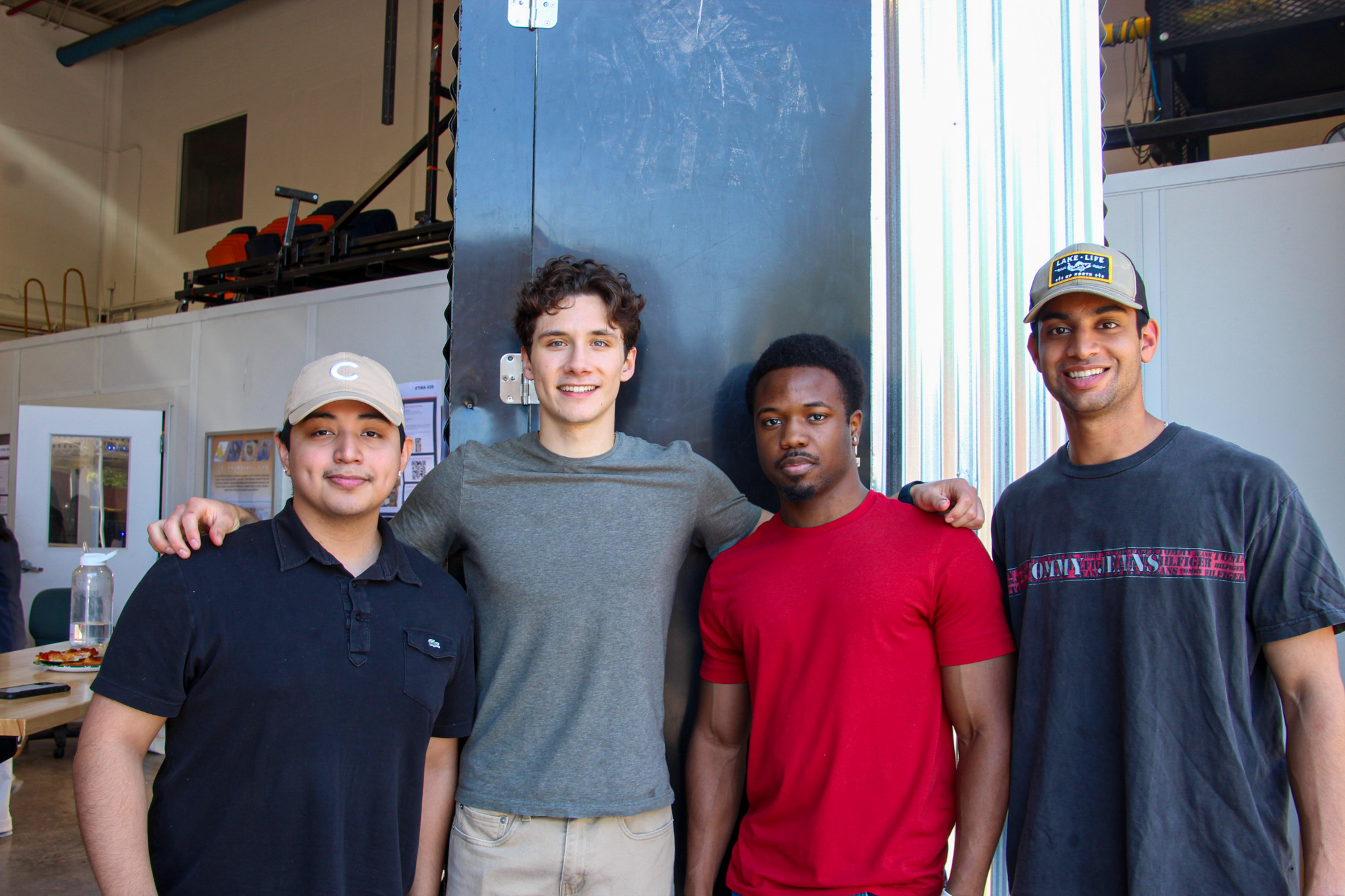Reflecting on the ABE capstone experience

Reflecting on my journey in the Department of Agricultural and Biological Engineering's (ABE) Capstone Experience course (ETMA 439), it's clear that it was as enriching as it was challenging. As I near the end of my college career, and transition to the real world as an assistant project manager for a construction management firm in Chicago, I can't help but recognize the profound impact this experience has had on me.
My team, comprised of Shai Rajpurkar, Tavarre Phifer, and Randy Laureano, took on the ambitious endeavor of constructing a small-scale Freight Farm, made for hydroponic cultivation. Despite minimal direction, our shared desire for hands-on learning fueled our dedication and determination to see the project through to the best of our ability.
As we approached the deadline, the overtime hours accumulated, often working from day well into the night. While thankfully no tears were shed, we certainly poured our blood and sweat into this project, exceeding our initial expectations to meet deadlines. Despite falling slightly short of completion, I don’t believe that the journey was pointless. In fact, it was during those moments of adversity that we discovered what we’re truly capable of.
I believe that the invaluable lessons we gained go far and beyond what can be learned from traditional lectures and textbooks. Whether it was dealing with a limited budget or encountering countless roadblocks in our building process, each hurdle presented an opportunity to learn and grow.
Our methodology closely followed a trial-and-error path, inevitably leading us to countless instances where we were able to learn from our mistakes, teaching us the importance of prudent planning and flexibility when it comes to real-world scenarios. We quickly learned that success often comes from the ability to adapt and reassess when faced with challenges.
Although we learned a great deal from our capstone project, we also garnered a considerable amount from the other curriculum of ETMA 439. Each week, we faced challenges in the form of competitions against other teams. These challenges ranged from designing a bridge out of spaghetti and marshmallows to see whose can bear the largest load to a balloon-powered car. However mundane these may sound, there were valuable lessons and skills to be learned from them.
As I transition into the world of professionalism and begin “working for the man,” I find a sense of confidence that I gained from my capstone experience. The challenges overcame, lessons learned, newfound skills, and friendships forged have collectively made me into a more resilient, resourceful, and capable individual. This experience laid a stable foundation for the next steps in my life, and I am extremely grateful I was able to be a part of it.
Special thanks to Travis Johnson and Liam Reynolds for making this course so enjoyable!
Editor's notes:
The Department of Agricultural and Biological Engineering hosted its annual Capstone Expo, showcasing the culmination of ABE students' senior capstone projects. Spearheaded by teaching assistant professor Ann-Perry Witmer and instructor Travis Johnson, this year's event marked a milestone as it united students from both majors within the department — Agricultural and Biological Engineering (ABE) and Engineering Technology and Management for Agricultural Systems (ETMAS) — for the first time.
To learn more about the ABE department's undergraduate programs, contact abe@illinois.edu. To support experiential learning opportunities like this, contact the Office of Advancement at 217-333-9355 or acesadvancement@illinois.edu.